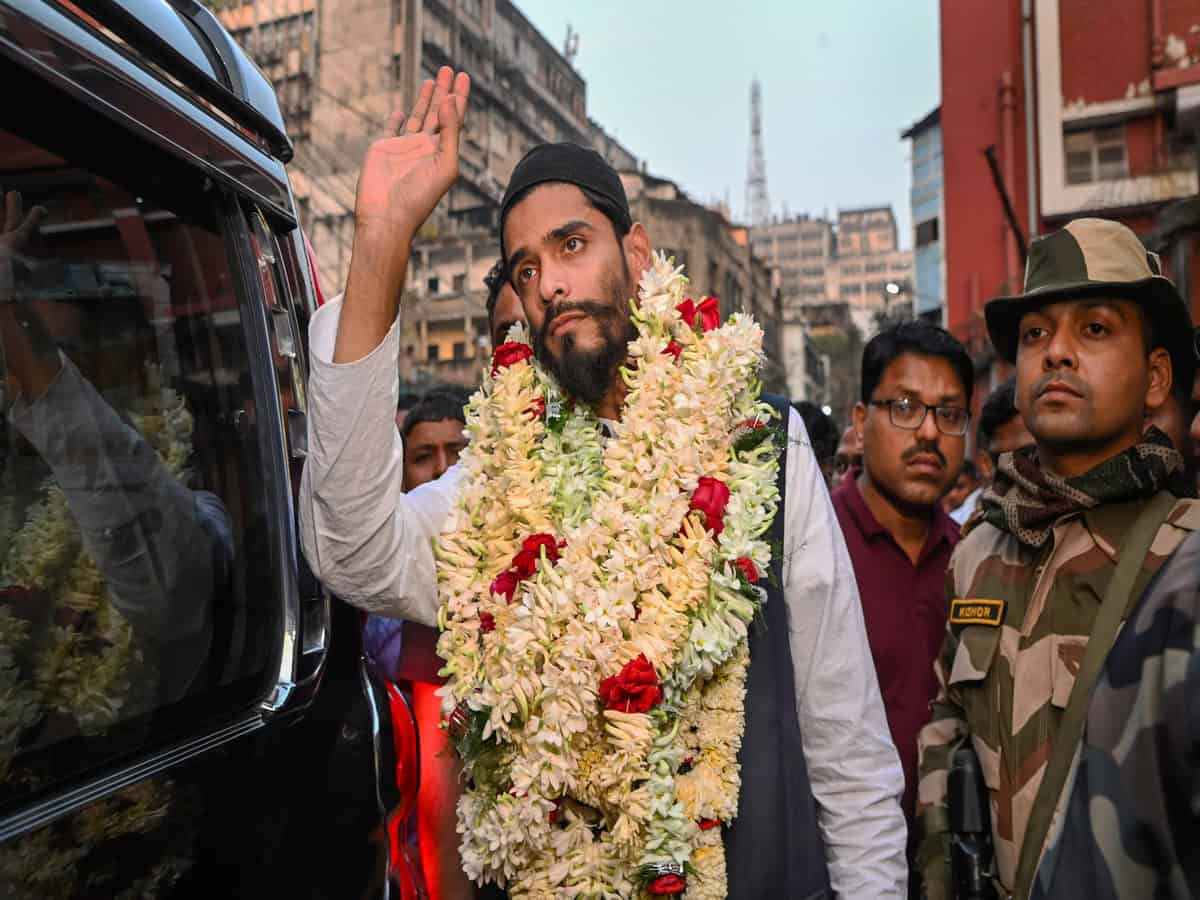
Kolkata: Naushad Siddiqui, chairman of Indian Secular Front (ISF), political bedfellow-turned-estranged partner of the Left and Congress in West Bengal, says RSS and TMC agents may have penetrated the ranks of his erstwhile partners who thwarted the alliance and dampened effective resistance to TMC-BJP’s joint domination of the state’s political landscape.
Siddiqui, the sole non-BJP opposition MLA in the Bengal assembly, won the Bhangar segment, a political hotspot with a consistent history of violence, in the 2021 state polls as part of the Left-Congress-ISF united front that was forged ahead of the elections. Both the Left and Congress drew a blank in those polls.
Ironically, the alliance fell through in the run-up to the 2024 general elections with the ISF now choosing to put up its candidates in 17 out of the 42 seats where the party is simultaneously fighting the Left and Congress besides the state’s ruling dispensation and its prime challenger.
Political observers opine that by the end of the polls, the ISF may emerge as the state’s prime ‘vote katua’, a term loosely used in common parlance for parties whose votes may not result in their win but may tilt the electoral balance in favour of one of the two main contestants.
In Bengal, where many poll experts believe that the tussle between the BJP and the TMC may end in a photo finish in terms of the number of seats each of them manages to grab, the role of ISF could turn out to be crucial.
“We have not joined the poll fray thinking who would gain or lose by our participation in the elections. We are fighting to win in all 17 seats and feel that can happen if we can convince voters about the alternative politics we preach. Otherwise, we won’t win a single seat,” Siddiqui told PTI in an interview.
“But in hindsight, it seems that both RSS and TMC-minded elements are now calling the shots within the CPI-M and Congress here, people who did not want our alliance to continue since both BJP and TMC were worried about the united morcha’s growing strength,” he added.
Siddiqui revealed that during the seat adjustment talks with the Left, the ISF had initially asked for 14 seats and later came down to just seven.
“But since they wouldn’t budge beyond three-four seats, we found that attitude humiliating and a blow to our self-respect. We never broke the alliance, in fact, tried till the very end to hold on to it,” he said, adding, “With the Left by our side, the job of resisting the BJP and Trinamool would have been easier. The task has now become more laborious.”
Siddiqui’s personal ignominy, perhaps, came from the ISF’s refusal to nominate him from the Diamond Harbour seat, after the party chairman went public announcing his intention to take on the TMC’s perceived commander-in-chief Abhishek Banerjee from the constituency, and instead entrust him with the task of leading the campaign for its candidates.
“At the individual level, the party’s decision hurt me badly,” Siddiqui confessed, “Because that would have allowed me to directly challenge the nucleus of the state’s corruption and expose how he silenced people to submission.”
“But our party practices democracy. The will of the majority was that I do not remain confined to just one seat and play a bigger role in these elections. I had to abide by that decision since I am not above my party,” the leader said.
Asked if that branded him as an “escapist” in the eyes of his opposition, Siddiqui said he was getting that barb more from his “friends in the Left” than elsewhere.
“Might I remind them that when I faced post-poll violence, was barred from entering Bhangar for six months and thrown into jail for 42 days, no friends of the Left or Congress stood by me. I was also offered money and government positions which I rejected. I am not one to run away or back down,” Siddiqui declared.
Speaking of ISF’s brand of politics, Siddiqui called it the “politics of partnership” where the party advocates partnership of Muslims, Dalits and other backward communities in power in direct proportion to their population strength.
“Almost all parties use these groups as vote banks not allowing them fair representation in positions of power and authority in the state and Centre. We want to change that lopsided idea of politics in this country where people are not subjects to a lord but are equal participants in democracy,” he said.
But despite that idea, isn’t the ISF largely viewed as a party of Muslims? Siddiqui disagreed.
“Attempts have been made in the last three years to brand us as ‘fundamentalists’, ‘BJP’s stooge and a ‘party of Muslims’. But perceptions are changing among people based on our performances inside and outside the Assembly. While some people now see us as the only beacon of hope for the tortured and deprived, others could be in a wait-and-watch mode. But our party founders never wanted it to become a party for Muslims,” he asserted.
Is the divorce between the ISF and Left-Congress permanent or are there chances of reconciliation in future?
“The Left is in a better position to answer that question,” Siddiqui said, “Personally I feel that we are currently detached from friendship but our enmity has not yet begun.”
The leader confirmed that if the Left and Congress renewed their unity proposal, the ISF was ready to consider it.
“Our fight against the BJP and the TMC is ideological. Our doors remain open to all non-TMC-non BJP forces who are willing to fight the good fight,” he said.



